I give presentations about the lessons learned in my career as an adventurer.
I’ve written a bunch of books about adventures large and small.
I post regularly on Twitter and Facebook.
And I’d really appreciate it if you signed up for my occasional newsletter:
So, you want to be a professional adventurer? You want to go beyond simply doing great journeys in your spare time, holidays or sabbaticals. Here are a few thoughts, for what they’re worth, about what I’ve learned over the last few years about turning my hobby into my job.
First things first. It did not occur to me to try to earn my living from adventure until I had already spent a year in Africa, done three separate expeditions each of three-months duration, spent three months working and travelling in Asia, written for my university travel magazine, written two books (only one of which got published), done a night-school photography course, and given more than 300 talks.
In other words, like in every other career (except for Being-a-Celebrity or Going-on-X-Factor which too many people aspire to as shortcut solutions), I’d served some sort of apprenticeship and built up some useful experience. It always worries me when people email me asking “how do I become an adventurer” before they’ve even done any sort of adventure.
Next, because I know that “adventurer” sounds like quite a fun job, and certainly a whole lot easier than nearly every proper job out there (except the two mentioned in the previous paragraph), here’s a few thoughts I penned to try to pour a little cold water [realism] on your dreams. And now, if you’re still reading, here’s a few more thoughts to help you clarify whether or not this is the job for you (because, if you decide to make your hobby a job, then it will become a job…).
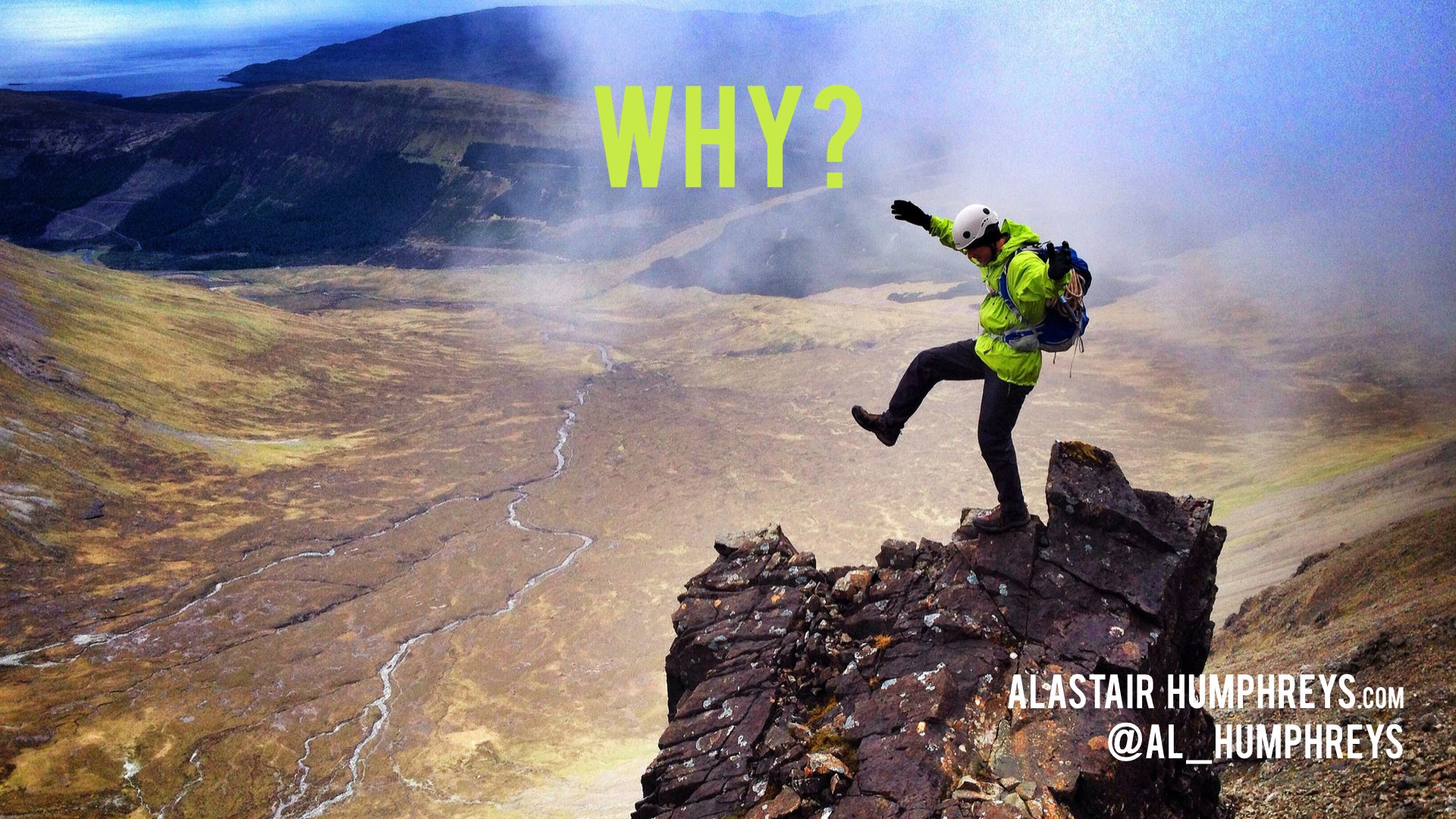
Why I am an Adventurer
Or, in other words, why I don’t just work a proper job and take a few months off occasionally to go on a big adventure.
- I love almost every aspect of what I do.
- I love being self- employed: the freedom and the responsibility and the pressure.
- I think I’mm probably now un-employable.
- I love being creative.
- I appreciate that building a profile helps generate exciting opportunities. (And I have come to accept -though not enjoy- the weird world of relentless self-promotion that being a career adventurer requires. I remain uncomfortable with people praising me more than I deserve, and I continue to get very angry and upset with the inevitable haters that your self-promotion will attract.)
Notice I don’t mention “going on adventures”, because there are loads of ways to do that in life. Don’t become a career adventurer solely because you want to go off on fun trips. There’s easier ways to do that.
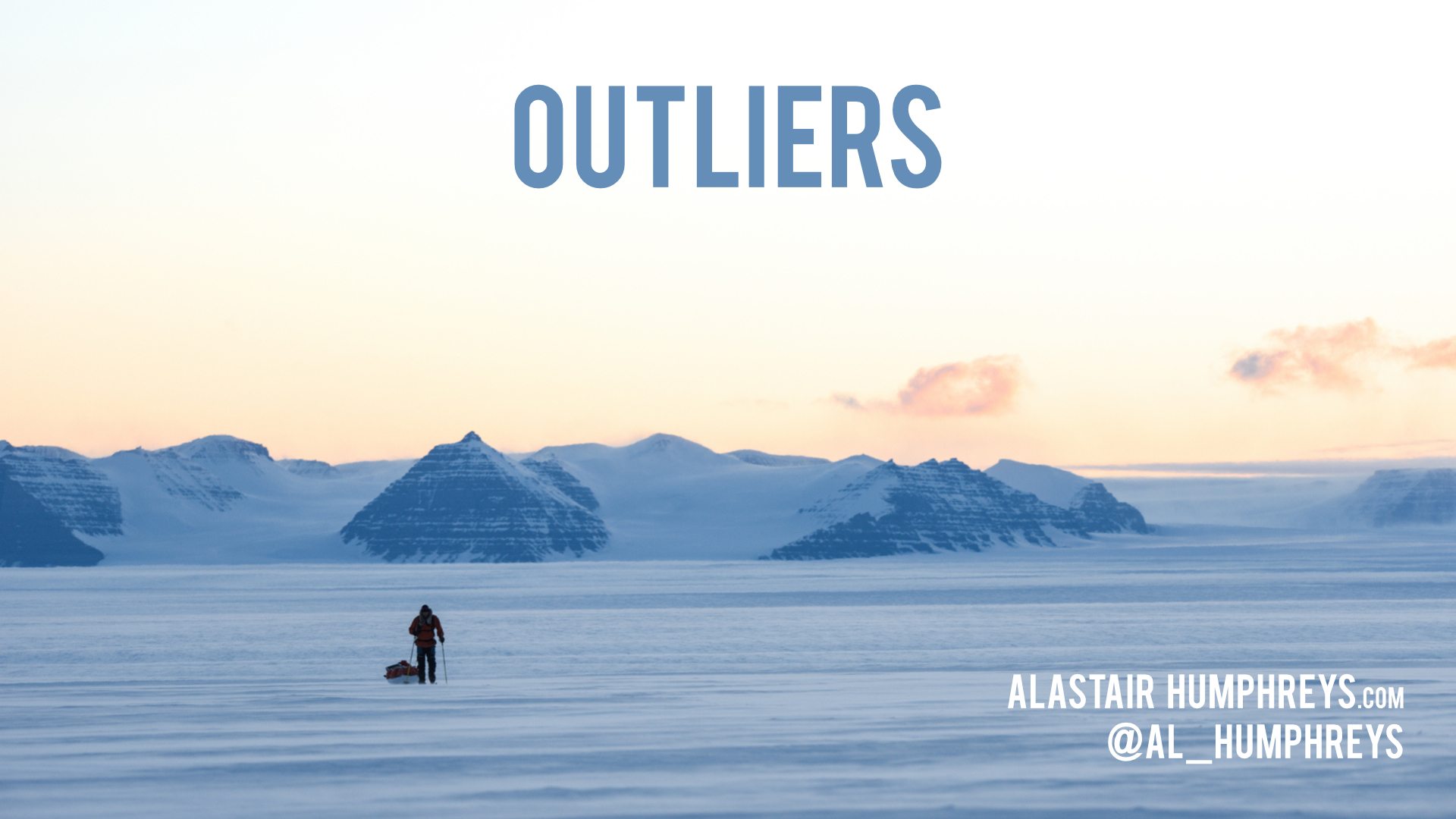
The Outliers
When considering trying to make a career out of travel and adventure, do not make the mistake of imagining your career path to emulate those of the outliers in the field. By definition you are unlikely to achieve as much as them.
- You are unlikely to be as great a climber as Reinhold Messner
- You are unlikely to sell as many books as Bill Bryson
- You are unlikely to take photos as well as Jimmy Chin
- You are unlikely to make films as successful as Paul Diffley’s
- You are unlikely to be on telly as much as Ben Fogle
- You are unlikely to be as rich as Bear Grylls
- You are unlikely to have the biggest stroke of luck that makes great things happen
- You are unlikely to have the best address book full of useful contacts who can make great things happen for you
That’s OK. Just be realistic with your dreams and ambitions. Assume that you’ll have to do everything yourself, starting at zero. And if you can do stuff that makes you proud, and earns you enough along the way… well, that’s enough, isn’t it?
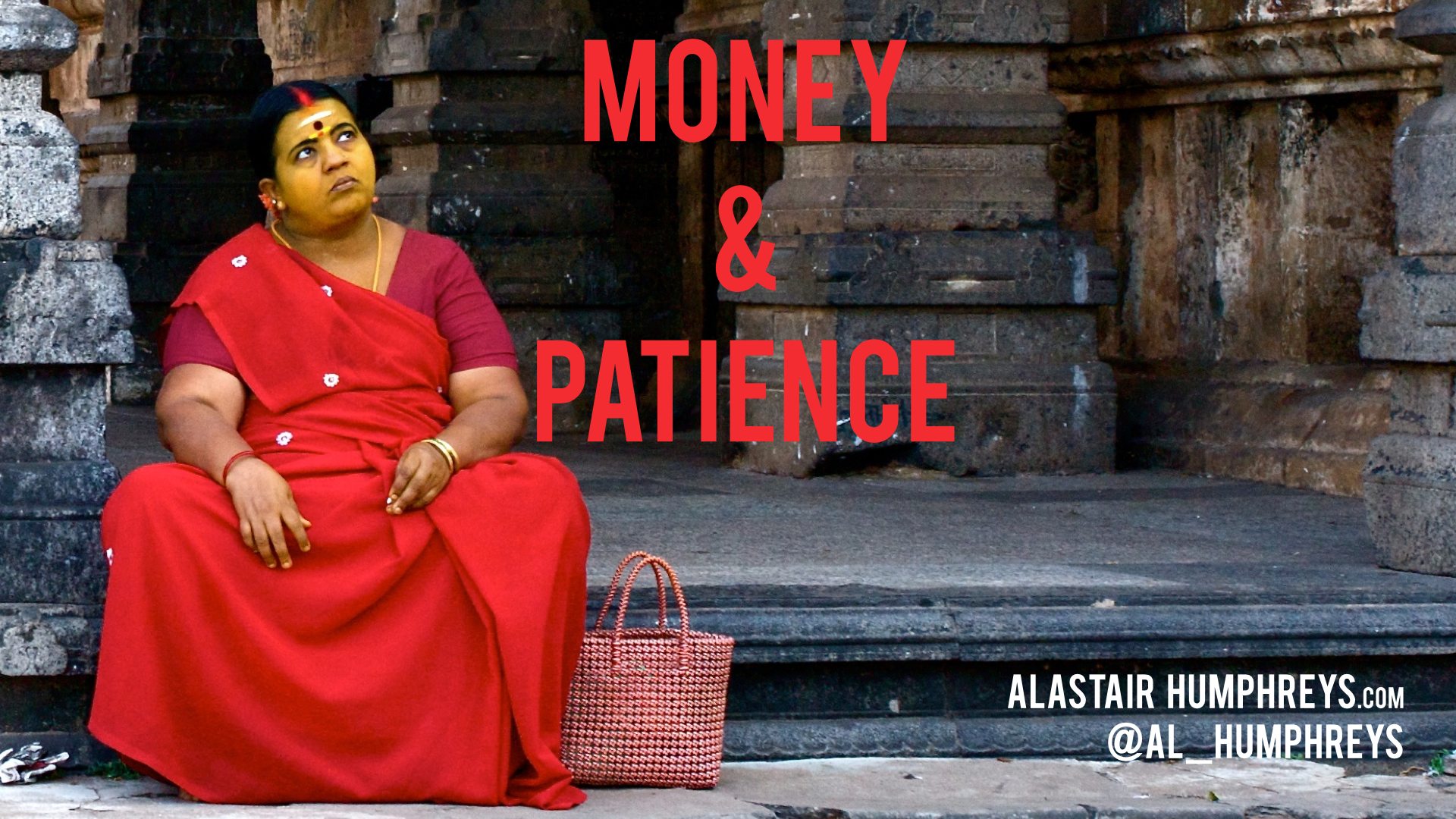
Money and Patience
Two things separate those who make long careers from adventure from those who fall by the wayside: Money and Patience…
Money
Three questions for you:
- How much do you need to earn?
- How much do you want to earn?
- How little money can you exist on?
You would be wise to embark on an attempted career as an adventurer only if you’re willing to live by the final of those questions, and be willing to do so for several years before you’re able to move on to the first question. If the answer to the second question is anything more than “enough to live on”, then this probably is not the job for you. Sure, a few adventurers are rich, but remember the Outliers above. Most adventurers are not rich. Consider also the fairly reliable correlation that richer adventurers live less adventurously than the poorer dirtbags living out of vans but climbing 300 days every year. Think about what you want. If you want to earn well, you’d be wise to get a different job and just spend some of your earnings on adventures. I know plenty of less intelligent, less driven people who earn many times what I do. And besides, wanting to live adventurously is almost the antithesis of wanting to be rich!
A few more points about money:
- How are you going to earn what you need right now? I don’t mean in 10 years time when you’re a mud-streaked millionaire with a clothing range and a six pack. I mean this week, this month, this year. How are you going to pay rent, bills and taxes before your new career gets established? For most people the sensible option will be to have a “proper job” and fit your adventure stuff in on the side. Give talks on your days off. Write your book before breakfast. Plan your expedition at night. Burn the candle both ends. Make stuff happen. It won’t be easy, but if you can’t hack this busy phase then you won’t be able to hack the hours you’ll need to put in over the coming years to make your career as an adventurer sufficiently viable to reduce your other work hours and – eventually – quit your job and strike out on your own full time, with no support net if you screw up.
- Bear in mind that even the rugged, glamorous adventurer you are dreaming of becoming will still need to file tax returns, log expenses, chase invoices and wonder (at some point, probably, hopefully, possibly) what the heck you are going to do about a pension. I can vouch from experience that the first three of these are agonisingly dull, and the pension security is still very far down my To Do list.
- Is it wise to make yourself a Golden Goose? Adventurers, almost always, depend on their repertoire of experiences to be able to earn money. What will you do when your knees pack in? What will you do when you’re older and wiser and fed up of being miserable and cold on a regular basis?
- If you like climbing or paddling, why don’t you become a guide and get paid by someone else to spend time out there doing what you love? Or become a scientist and get out on research trips? Or become a teacher and get paid to live and work in some exotic far-off land?
If you’re still keen, I write below about the ways that adventurers generally make their money. But before that, the second crucial characteristic for a sustainable career as an adventurer:
Patience
You need to be in this for the long run. It will probably take years before you write a good book, get involved with exciting projects, or earn much money. You need to enjoy the process and the journey. You’ll need to work many hours. You’ll need self discipline and to learn to manage your time, just like anyone running their own small business.
What you don’t need is any sort of idea about where your fledgling career is going. The path will twist and turn. So long as you are willing and make yourself financially able to serve a long apprenticeship, then you can enjoy this journey. But you must be willing to accept that things do not come about instantly. Too many people set the cart before the horse, seeking the honour and recognition but without first completing the hazardous journey on low wages in the bitter cold through long hours of complete darkness.
“Ready, fire, aim” is a great attitude for just getting started, launching in, and figuring stuff out along the way. It’s the way most adventurers operate. And it’s all good, just so long as you accept that it’ll probably take a long time before you hit whatever it is you’d like to hit.
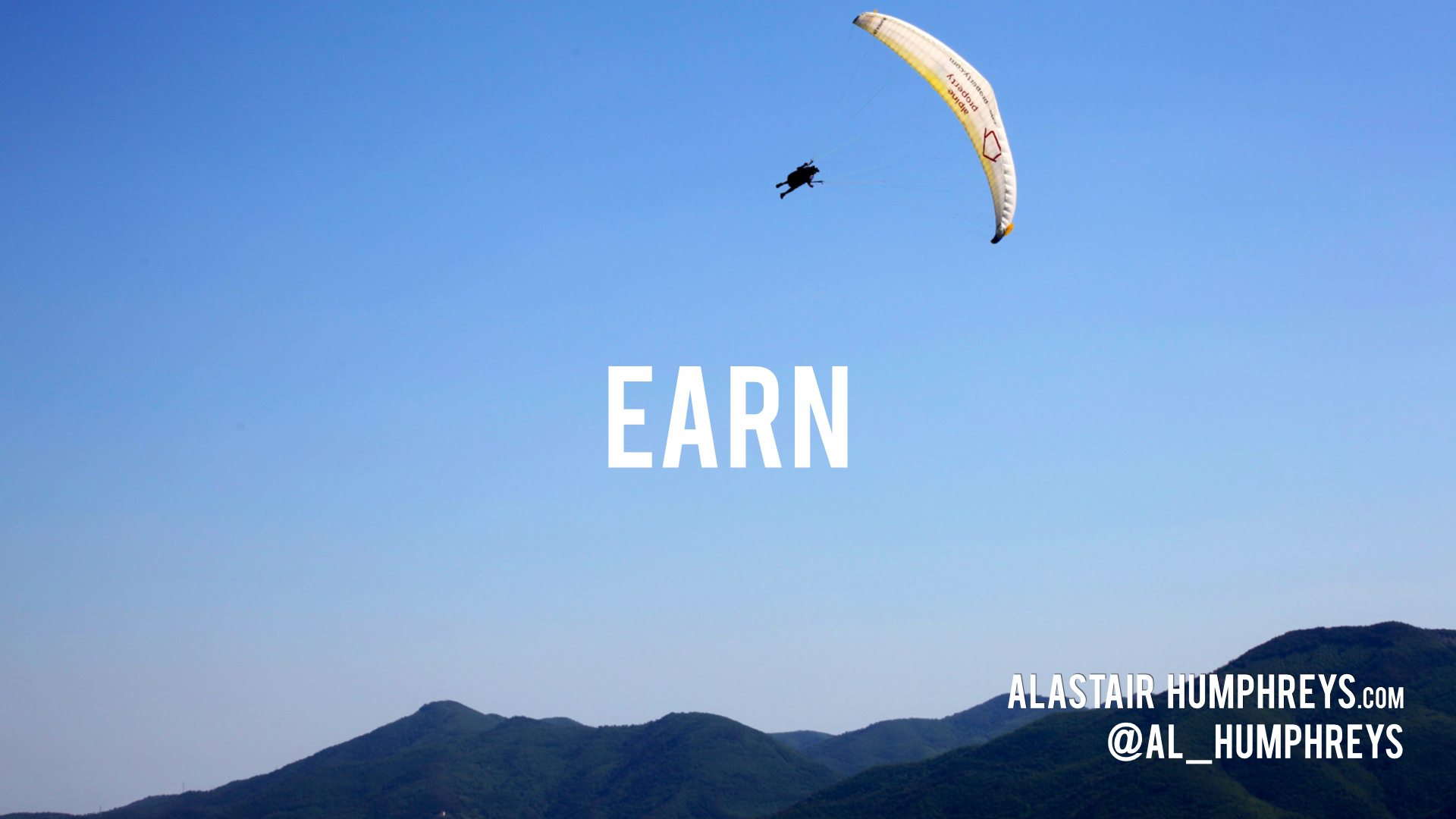
How to Earn Money as an Adventurer
If you want to make your career out of adventure then you’ll need to earn money from it. Some people think adventure is too pure a concept to monetise. These people will either find some other way to fund their adventures (which is absolutely fine), or they’ll just settle for criticising you online instead. By and large, these are the ways you can earn money.
Which one can you do? Which can you learn to do? Which will you enjoy?
- Guiding. Do you have the skills and qualifications? Do you want to guide other people on their adventures? Will you be employed by someone else, or strike out by yourself? If you go it alone, how are you going to get anyone to book with you rather than everyone else who is already established?
- Brand Ambassador. Unless you are a celebrity or uber-sexy, then this will not happen until you have served your lengthy apprenticeship. Ignore it for at least a decade.
- TV. Unless you are a celebrity, lucky or uber-sexy, then this will not happen. Ignore it.
- Blogging. There is negligible money involved in blogging (unless you become a renowned expert in a lucrative niche). But if you persevere with it, and do it well, then blogging is a useful way of making you more visible, known and respected online. This, eventually, might lead to earning some money from somewhere. I’mve written 1500 blog posts so far.
- Writing for Magazines. There are few paid slots available for adventure articles. The pay is OK (generally a few hundred quid), but I struggle to get more than a dozen in a year. Magazine articles are useful though for leverage (see below), and for raising your profile. It’s very hard to get your foot in the door.
- Writing Books. Very few adventurers can make a living from writing books. I have written seven books now, and still only earn about 15% of my income from the royalties. If you look at books in terms of an hours of effort to cash earned ratio then they are a terrible idea! But books make you seem more important than you really are, help raise your profile and – most importantly – can be incredibly challenging and rewarding to tackle. Self-publishing has removed many of the barriers to entry, but the problem of who will buy your book still remains.
- Film-making. Even less lucrative than book writing, in my experience! Satisfying, time-consuming, intriguing, frustrating in equal measure. Good films can help you spread the word online if they reach a wide audience. Lots of skill, time, effort and financial outlay required.
- Speaking. Speaking about my adventures is the only way I have managed to make what I do into a viable career. But it did not come quickly. I gave over 300 talks before I earned any money from it. So did having a decent-sized trip to talk about (4 years cycling round the world). My first paid talks were for tiny fees in schools. Do lots of these, get better at them, get references, and gradually you’ll be able to raise your fee. Training as a teacher helped. Getting into corporate speaking took me several years of effort after getting pretty established as a schools speaker. There is a lot of competition. It requires effort, application and a concerted focus on how you present yourself online. Not everyone is comfortable with these things, or with speaking to large corporations in general. It is certainly possible to make a living as a schools speaker though. Talks earn me money, expose me to a larger audience (who may one day ask me to give a talk), and help me to sell books.
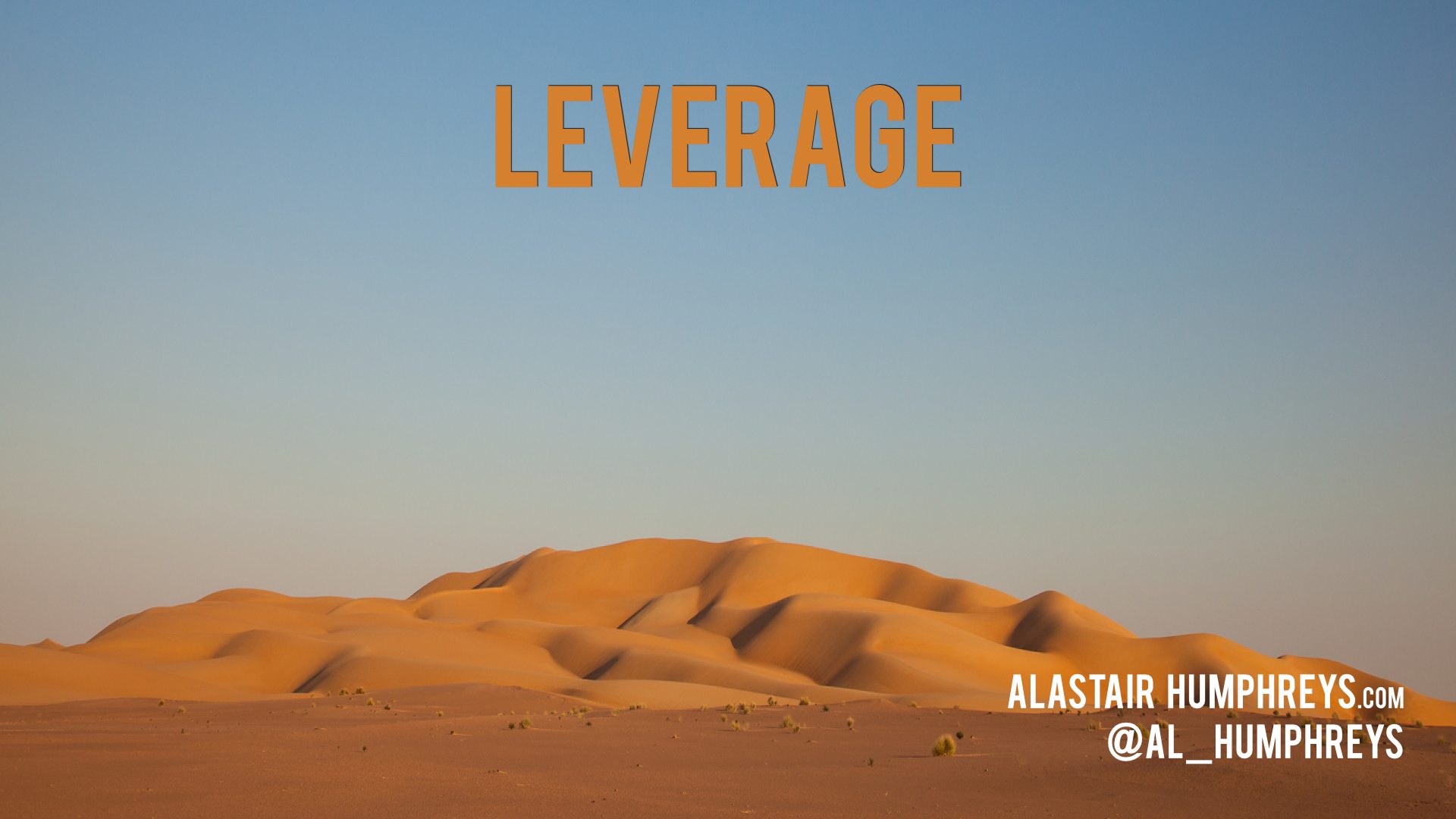
Leverage
If you want to climb K2, first you need to get good at climbing small, local mountains.
If you want to write a book, you’ll do a better job if you’ve already been writing for blogs and magazines.
If you want a big publisher, it helps if you’ve already published lots with small publishers or by yourself.
If you want the BBC to commission a series about your idea, it makes sense to have filmed plenty of short pieces yourself first.
If you want to speak at TED, get started now by speaking at your local Rotary Club, village hall, primary school, small business and so on.
With each rung you climb people will perceive you as being more competent. They’ll take a punt on you with a bigger project next time.
And do not be afraid to ask for help. Cold calling does not work, or at least not at first. So ask your Mum to ask her friend who can ask her boss who can ask someone else who, eventually, might be the person to help open the door for you. Be grateful. Fulfil your promises. Deliver more than you were asked for. Make each talk your best ever. Make each journey bolder, richer, more imaginative, fresher.
In other words, do the very best that you can achieve right now. Get started. Creep up the ladder. Improve. Don’t just sit around waiting, feeling like life is unfair, looking enviously at others.

Social Media
Much of your viability as a career adventurer depends upon the oxygen of publicity. You need to do good journeys, or course, but if nobody knows about them you’re not going to be able to earn a living. So you need to build, grow, and keep an audience of supporters.
First up, it’s essential to understand the principle of 1000 True Fans. The theory goes that you can make a living if you have a loyal support of 1000 people who’ll buy all your books, attend all your events, and so forth. How to get that audience? Do good stuff. Be different. Build a Tribe. This takes a long time.
Which brings me to social media… For social media is seen as a quick-fix solution, a way to get a big audience quickly and without effort. Sure, you can buy a gazillion Twitter followers, but that is totally missing the point. You need to produce quality content, and deliver it to people who actually want it (i.e. not Spam).
Whatever numbers of “followers” you have on social media, the actual conversion rate [making them buy stuff, to put it crassly] is minute. And every time you ask, you use up a little of your goodwill capital. So it’s far better not to consider social media as a magic wand. And it will never, ever work unless you do cool stuff. Nobody will care until then.
Social media can help your growth, but slowly. Here is how I think you should try to use it:
- To entertain and inform
- To help people in your niche (answer questions, don’t just self-promote)
- Generating a presence – comment on blogs, help people on forums, offer advice
Process Summary
My advice on how to turn your adventures into a career distills down to these few points, written in decreasing order of importance:
- Do good stuff. (Without this, you have nothing)
- Repeat Step 1
- Work out your USP (unique, original, fresh, different, useful, but not a gimmick)
- Generate great content
- Repeat Step 4
- Focus on substance over style
- Tell people about it
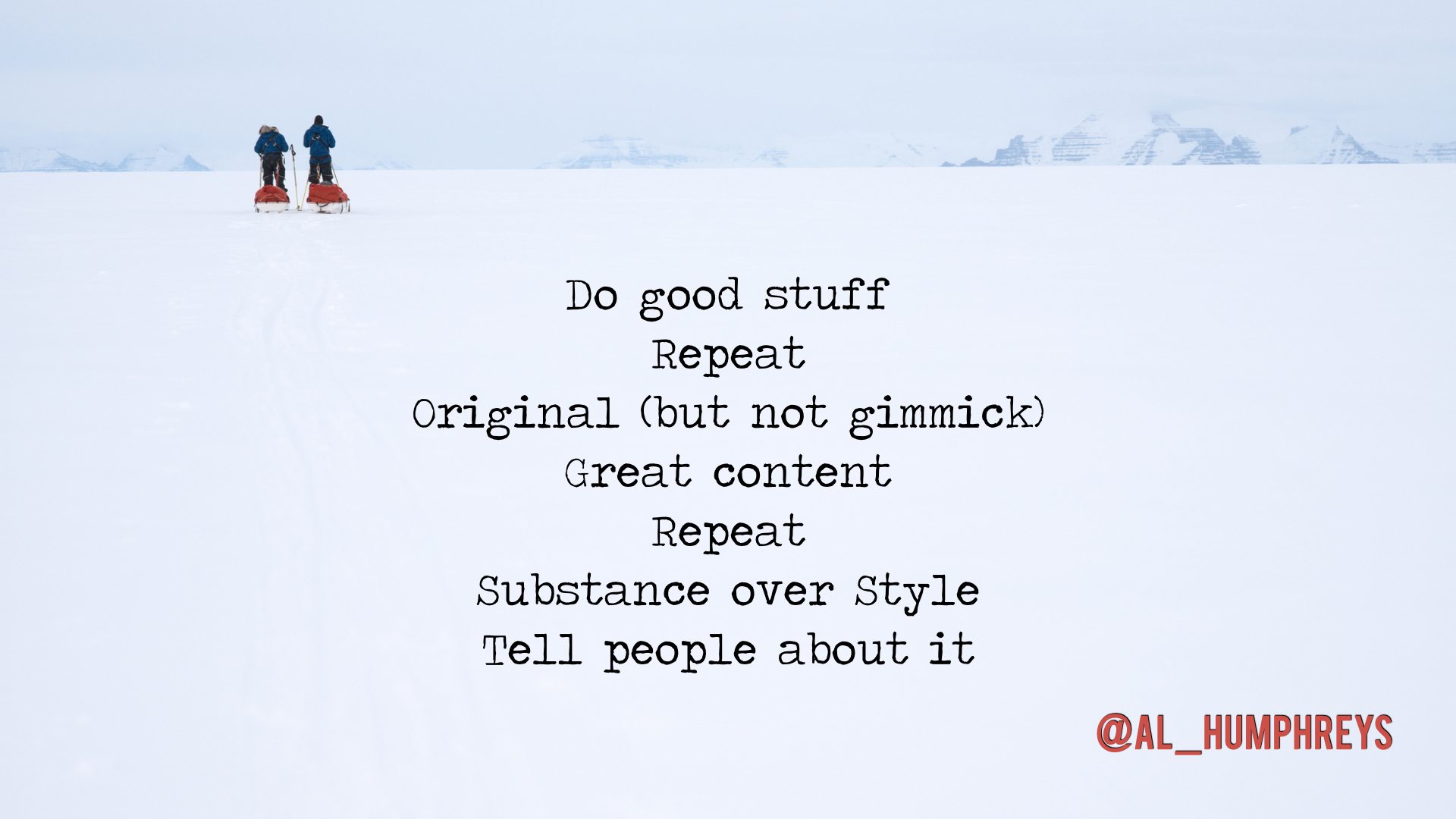
Checks and Balances
Finally, keep yourself on the right path by paying regular and rigorous attention to these points:
- Why did you set out down this path in the beginning?
- What are your true aspirations?
- What Would …. Do? [Insert name of person you respect the most]
- Don’t believe your own bullshit!
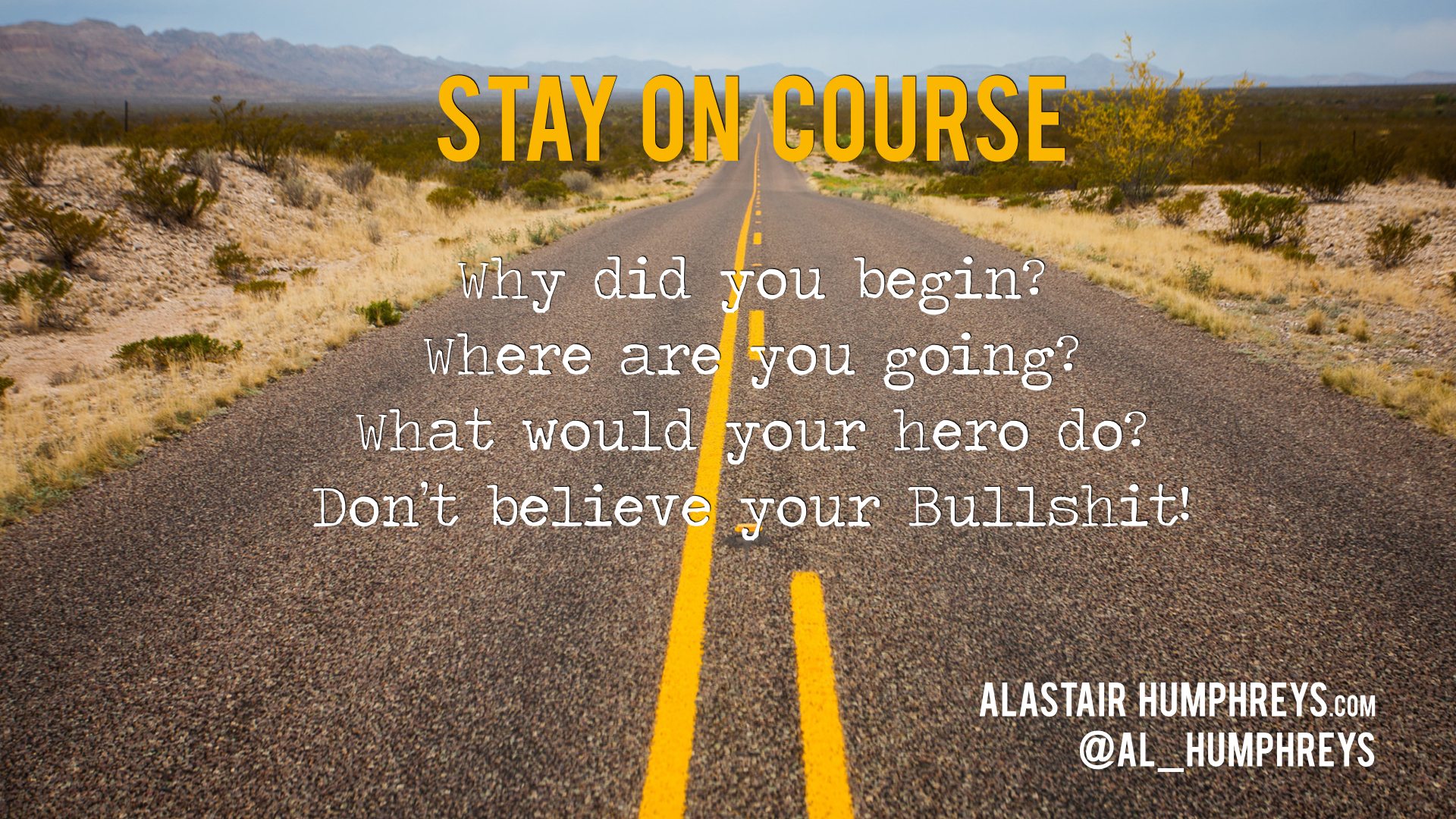
—
HERE IS SOME ADVICE ON BECOMING A TRAVEL BLOGGER
I began travel blogging 14 years ago. I have written over 1500 blog posts for my own website, and many more as a guest blogger on different sites. If you are new to travel blogging, I hope that this post will help steer you in the right direction and make fewer mistakes than I have done.
Travel blogging is easier today than it has ever been: we all have all the tools we need to produce professional-looking content and share it with the entire world.
Travel blogging is harder today than it has ever been: never have people had so many demands on their attention and time. How will you make your blog shine out?
This is not intended to be an exhaustive guide on the subject. Instead, I will pose lots of questions. Answering them will, I hope, help you steer yourself in the direction that you wish to travel with your travel blog.
Please grab a pen and a piece of a paper to jot down some of the answers as you go along.
If you have any comments, questions, criticisms or suggestions, please do add them in the comments below.
I have compiled all these notes into a PDF. Feel free to print, hack, edit, share as you wish (please just remember to credit the source): Free Guide to Becoming a Travel Blogger.
First Things First
The first and most vital thing to consider is the travel itself. If you really are at the very beginning of this process, please forget all about travel blogging until you have first made a plan about your actual travels! The travel comes first! Not only because that is the really fun part and – probably – the strongest driver behind you actually wanting to be a travel blogger. But also because the biggest key to being successful as a blogger is to be authentic. And if your travels are merely an afterthought, then you will never sound authentic. Go away, get wildly excited about your travel plans, and then we’ll carry on!
Ready?
What is Travel Blogging?
For the purpose of this post, travel blogging means “telling the story of your travels on the internet.” You might be cycling round the world, backpacking round Africa, or living in Goa. You might write your story, or create video or take photographs. You might be sharing the tales of your own adventures or offering practical advice – on travelling in a region, travelling a certain way (cheap, light, slow, female, disabled, bicycle), or how to do something (get a job in Oz, cook authentic curry, prepare for an expedition). It doesn’t matter what you are doing. Everything here still applies.
Why do it?
You have to do it because you enjoy it. You must. Because, for 99.99% of travel bloggers (myself included), it is a vastly time-consuming exercise with little, if any, immediately tangible reward. If you are not excited about putting in huge amounts of time and effort into telling your story, then I suggest that you stick to communicating through social media. I don’t mean that as a slur in any way, for social media is a vast and powerful tool. But if you want to blog well, and to persevere with it, you need to enjoy it.
There are other reasons to blog besides just fun and letting your mum know what you’re up to. These include:
- Keeping sponsors happy (on expeditions)
- Becoming established as an authority in your field
- Building up your presence on Google
- Helping you to sell something
- Earning money directly
What do you Hope to Achieve with your Blog?
Pause for a while and think about this question. It is so important. And virtually nobody (myself included) pays much attention to it in the early days. The current design of my website, and the purpose of everything that I post on here, is designed to further one of these three aims: to be perceived as an expert in my niche; to get more speaking bookings; to sell books. I hope it does not seem to joyless and mercenary when written down like that. I still love doing this stuff, but I have had to focus harder now that it is also my job.
Deciphering what the point of your blog is will help you know which direction you need to travel.
Define Your Success
What will you need to do for your blog to feel “successful”? Comparing yourself to others on the internet is a mug’s game. However witty, wonderful or useful your blog might be, you’ll never get close to the 793,615 Retweets that this One Direction Tweet got.

Be realistic with your ambitions. What will make you feel like your efforts have been worthwhile and sufficiently rewarded?
Focus on producing the best quality content you possibly can. Do this over and over again. That is the single best thing you can do towards making your blog a success.
5 Mistakes I Made when Starting Out Blogging
- Trying to write about too many subjects
- Caring too much about the ‘stats’ of my site
- Quantity of blogs rather than quality of blogs
- Underestimating the importance of how a blog looks
- Writing lazy list posts and then struggling to find a decent final point to make up the number I put in the title…
(more on the detail of these later)
6 other Common Mistakes that Bloggers Make
- Sloppy editing
- Poor photography
- Poor titles for blog posts
- Not utilising social media to increase readership
- Not posting frequently enough
- Trying to re-invent the wheel. I get loads of emails from people “launching a new social media blog for travellers to interact with each other.” Is it like Facebook? I ask. “Yes, but it’s for travellers.” Just use Facebook.
Blogging Platforms
There are loads of different blogging platforms available. I urge you to spend a lot of time looking at blogs online. You’ll begin to learn which ones you like, which ones might serve your purpose. Each has their pros and cons. Some are free, some are not. Some are flexible, some are not. Some are blocked in China. Some work better for photos, others for video. Some for short content, others for long essays. Dig around blogs in your niche and you’ll begin to get a feel for what appeals. Will people read your stuff on their computers or on their phones? (Hint: smartphones are taking over the world. I suggest you imagine your typical reader to be using their phone. Your blog needs to be ‘responsive’ – change size according to the screen size people are reading on.)
Here are a few blogging platforms to consider:
- WordPress.org – what this site is made on. There is also wordpress.com but I really don’t like that. If you are serious about this thing, then wordpress.org is probably the way to go. You might need to hire a geek to help set it all up
- Tumblr – trendy, very simple, free, loads of beautiful designs. Content is quite transient – it flows down like a Twitter feed so isn’t so good for building up categories of old searchable content. I might use this for a one-off road trip across the US where I wanted to post lots of short content easily and quickly
- Squarespace – simple, versatile, beautiful, free and paid options
- Strikingly – simple, versatile, beautiful, free and paid options
- Blogger – simple, owned by Google, free, ugly, not responsive
- Medium.com – simple, free, booming, good for long-form writing
- Facebook – do you need anything else? I considered starting a new blog for my Microadventures. Instead I decided to use Facebook. Good if you want people to interact with your content.
- YouTube (if you only produce video content)
You might want to dabble with a few of these before you settle on what works for you. The links above will show you that I’mve tried everything! Once you know what you want you can set about getting it to look how you like. Many options now look very beautiful for free. But if you are taking the whole thing seriously, then be prepared to pay decent money on your site design and SEO. It is worth it.
Find your Niche
You have thought already about what “success” will look like for your blog. A blog can be successful with 1000 readers. It can be a flop with 10,000 readers. It all depends on the goals of your blog.
Here is the key thing to aim towards:
Find your niche, and work to be the best blog in that niche.
Your niche can be whatever appeals to you. It is better to have a narrow, specific niche than a broad niche. It is better to be the expert in a small niche than one of the crowd in a bigger pool.
For example, it is more useful to be the authority on travelling in Taiwan, with 1000 wildly enthusiastic fans than to have twice that number of people passing briefly through your site because you rank averagely on blogs about the massively popular topic of backpacking in Australia. If you have 1000 true fans you have the starting point for a viable business.
So, what is your niche? What is your USP?
Once you know this, you should concentrate all your blogging efforts on it. Find your message, then repeat it, repeat it, repeat it. Bang the same drum over and over again, louder and crisper each time. That is all you need to do. Experiment, tweak, test, evolve, surprise – of course. But do all these things in order to ultimately hone and develop your USP.
1000 True Fans: your Tribe
Everything you do with your blog should be done with the aim of building 1000 true fans. Do not try to please everyone. If you do, your blog will be bland and boring. Be exclusive. Ignore those who do not want to play your game. Focus only on those who do want to be in your gang. This is your tribe. Your most precious thing. [You need to read 1000 true fans and Tribe.]
You need to talk to them, and listen to them. Email new readers – build a relationship. Answer comments. Ask them what they like and what they don’t like. This is your core audience and absolutely critical to the success of your blog.
Practical Blogging Tips
People have written books on this topic. There are countless blogs on how to blog. I will not try to compete with them. Here are a few things for you to think about though:
- This 31 day programme to improve your blog is a wonderful gold mine. Do it. Make a note in your diary to repeat the whole process in a year’s time. Invaluable.
- Work out how frequently you are willing to post. Now stick to that. Occasional blog posts are fine, so long as they are regular. In an ideal world I would suggest posting 3 times a week, but only if you have interesting things to say 3 times a week. Regularity is key, so that your readers grow familiar with the pattern.
- I sit down at the start of each month and schedule all my posts for the next month.
- Use Categories or Tags for every blog post you do, so that people can search back through the archives to find topics that interest them. Do this right from the beginning.
- Experiment with what length of post feels right to you. Long is fine, if it is really good. Generally it is better to go for brief posts (unlike this one!) with short sentences, regular paragraph breaks, sub-headings and relevant photographs. Attention spans are short. Eyes jump to what they are interested in. Here is an example of superb, long blog posts. Here is an example of superb, short blog posts.
- “Excuse the long letter, I didn’t have time to write a short one” – Churchillian wisdom that definitely applies to blogging. Writing a good blog post takes a long time. If you don’t have time to write good content, don’t write anything at all. I wasted my time and (my few) readers time going through a phase of churning out content for the sake of it. Pointless rubbish like this.
- Reply to comments. Remove spam ones. (If you use WordPress, install Akismet.)
- People love lists. Make them good lists though, not lazy ones.
- Work hard to make your blog titles really good. (Learn the slightly grubby art of linkbait.)
- Link to other blog posts you have done. Work really hard to keep people on your site once you’ve got them there. In other words, if someone is enjoying this post about blogging, it would be sensible of me to direct them to this post on making your living out of travel too. I should also take a moment to go to that blog post and add in a link to this one as well. You need to start building up a web of interest, holding people ensnared in fascination in the depths of your blog… For that reason, you need to be cautious about offering tempting reasons to leave the blog. I’md be foolish to tell you about this hilarious video of a baby panda, for example.
- I’mm in danger of starting to write a book on the topic here, so I’mll just emphasise that you should do this 31 day programme to improve your blog, even though it takes you away from my site. It’s OK though, because I am helping you, helping my tribe. And if I do that well enough you might return…
Skills
You need to work out what you are good at, what you’d like to learn, and what you are going to have to outsource. Things like:
- writing
- photography
- film-making
- recording podcasts
- SEO
- under-the-hood geeky tech stuff
- analysis of your site’s traffic stats
SEO
Search Engine Optimisation, also known as Making Google Find You, is a vital part of your blogging life. In the olden days, when I began, it involved all sorts of really boring things like header and alt tags, backlinks and meta whatnots. Boring. Important. Google is cleverer nowadays and harder to trick into believing that you are interesting. Overall though, this is a really good thing. Because it means that if you are interesting, then your stuff will shine through.
So my SEO advice to you is simple:
Ignore SEO for now, and just focus on producing exceptional content on your subject over and over again. Give your posts succinct, interesting titles.
If you want to go a little further, think about what questions people might ask Google that you are able to solve on your blog. Now write blog posts specifically on those topics. Neither the title, nor the depth, of this blog post are coincidence. If you begin playing this game, be sure to keep producing good stuff, not just rubbish that will trick people to clicking a link on Google. You can trick people to your site once, but that’s not going to develop into regular readers (Tent Porn, anyone?)
Analytics
I strongly advise you not to worry about the analytics of your site for at least a few months. Nothing matters more than generating really great content. Focus on that. It’s worth setting up Google Analytics though, for when the time comes to delve into your audience’s behaviour.
A few years ago I got totally addicted to checking the traffic statistics for my website. So I went cold turkey and banned myself. Now I never look at them at all. I’mm going to break the habit now, and have a peek at the key indicators that matter on your blog. Knowing what these indicators are will help you craft a better blog. The internet is full of advice for you if you want to delve deeper into this side of blogging.
-
Bounce Rate
This is the percentage of people who leave your website after visiting just one page. You want it to be as low as possible. Mine was 64% last year. The more enticing links you provide, and the more reasons you offer to entice the reader deeper into your site, the more likely they are to hang around rather than “bounce” away to another site.
-
Average Session Duration
How long people stay on your site each time they visit. The longer the better. Quality content is key (as always). The more enticing links you provide, and the more reasons you offer to entice the reader deeper into your site, the more likely they are to hang around. Mine was 2 minutes 46 last year. The internet is all about short attention spans and making the most of those.
-
Sessions
This is how many people visit your site. It’s a number you can use to boost your flagging spirits when you think nobody is reading. Nice, but not very helpful. More useful is to ask yourself – “what would I like to convert these people into doing?” Commenting on the blog? Sharing on social media? Buying something?
Look also at how many visitors return (40% in my case). Why are they not coming back? How can I entice them to keep hanging around? Can I tempt them to sign up to my email list so that I can tell them when interesting things are happening?
I’mm going to stop this section here, before I get carried away. Explore around Google Analytics and you’ll see, in real time if you like, what sites people are visiting your blog from, what they are searching for on Google to discover you, where in the world they are visiting from and much, much more.
Neglect at your peril. I neglect mine entirely. I shouldn’t.
Growing Your Audience
Promise me, before you begin this bit, that you are busy and excited about your travel plans and that you are focussed on producing regular quality content for your blog. You are? OK.
Only now should you think of things like promoting your blog on social media. I get so many emails from people saying “please will you promote my blog on Twitter?” and when I look at that blog it is brand new and has one measly entry. It’s pointless!
But you are up and running now. Your blog is filling with great stuff. It’s time then to grow your audience.
Here are some things you need to do (and probably need to Google for specific advice on as this is a vast and time-consuming field):
- Begin gathering email addresses for a newsletter. This is absolutely vital and critical and essential. Do it! Focus on it regularly. I do: look you can sign up for mine here or at the bottom of this post. Your mailing list are your true fans. The ones who will buy stuff. The ones who will hear from you even if they forget to check your blog. These people are sacred. Look after them! I’md recommend Mailchimp or Tiny Letter for your group, though I use Google Groups. (How to write good newsletters is another blog entry in itself!)
- Set up an automated system so that whenever you update your blog, an update will post on Twitter and Facebook.
- Start promoting your blog on Twitter, Facebook, Google+, Instagram, LinkedIn, Buffer and any other social media site that feels important to you. Each of these sites requires a different tone from you. Each one requires that you are not just a bore who bangs on about their own site all the time. Become an expert in your niche. Promote other good content. Answer people’s questions. Help other people. And – occasionally – push your own content too. (This is a good book to read on this vast and ever-evolving topic.)
- Spend time visiting and engaging with all the other blogs in your niche. A great thing about blogging is that the people who may be your “rivals” can actually easily become collaborators and friends instead. The internet is not zero sum: helping other people will not shove you backwards. Leave comments, answer questions. Do the same on forums.
Earn Cash
Almost no-one makes decent money directly from their blog. I earn my living from the talks I give and the books I sell, and quite a few of those come about indirectly via my blog. [Notice I linked to them there – never miss a chance to gently make it easier for the reader to get to the place you’d like them to get to… ![]() ]
]
However, it certainly is possible to earn money from your blog. Here are a few ways:
- Adsense adverts – I’mve used them. They looked ugly, I earned pennies
- Amazon affiliate links – if you have a lot they can add up. I’mve never quite got round to bothering
- Letting people write blog content for you in exchange for cash. I get about 5 email requests a week from people wanting to do this. They offer $20-$100 a time, write a blog post which contains a link to a website they are trying to promote, and you put it on your site. A very quick way to totally discredit your authentic voice
- Find people who will advertise on your site. A few years ago I was earning a few grand a year from this, but it has totally dried up now. I’mm not sure if that is the advertising model, my blog, or my efforts to woo these companies
- Sell something. The best thing to do. Sell books, ebooks, consultancy sessions on your expertise, handicrafts – anything. Shopify and PayPal make this so easy to do
Here is a great post from a couple who’ve managed to turn their travel blog into their job.
Conclusion
This is a minefield of a topic. It’s vast, fluctuating, and fast-evolving. If you want to begin as a travel blogger I would focus on these key points and just gradually begin figuring out everything else:
- Work out why you want to blog.
- What is your niche? What is your USP?
- How would you describe your blog in a couple of sentences?
- Set up your blog today. You can finesse and polish it all later.
- Start producing regular, excellent content.
- Commit to learning new, relevant skills.
- Begin to tell the world what you are doing via social media.
—
HERE IS ANOTHER ARTICLE I WROTE ABOUT MAKING A LIVING FROM YOUR TRAVELS
Part of me felt that this was not a sensible blog post to write. “Professional Adventurers” are popping up across Britain like mushrooms in a moist autumn night. A week barely goes by without me discovering yet another thrusting young pup (mostly-white, mostly-male, mostly-middle class) throwing his hat into the ring to join the competition to try to get paid for their holidays. So surely it does not make sense for me to be giving any of them even the tiniest bits of help?
But one thing I have learned is that it is wiser (and certainly better for your sanity) to not worry about what your “competition” are up to, not to compare yourself with them, not to get jealous of their good fortune. Better to help other people whenever you can and trust that, in the long run, things will come round to work in your favour. Besides, none of the points below are particularly earth-shattering. And most of it really is stuff that I need to remind myself about from time to time and work harder on. I’mve written about this topic before, here and here and here.
How to Make a Living from your Travels.
- Travel. If you ain’t done nuffin, you ain’t got no story, bruv. Know what I mean? Don’t call yourself a Traveller / Adventurer / Explorer until you have travelled / adventured / explored. Promise low, deliver high.
- If you are writing don’t just write your story. Think about what are the key aspects of your story? What do you need to tell your audience for them to be on the journey with you? Don’t tell them anything else! I don’t care about your check-in experience at Heathrow. Chop out half the words of whatever you have written and it will become twice as good.
Trawl through this website and you’ll find very few maps or ‘useful’ information: that’s a conscious choice. You need to decide what tone you want to set. There is a niche for sensible trip reports with maps, distances and elevations. I’mve chosen a different angle: I try to convey how a trip felt. My Iceland write-up would be of no practical use to someone planning a trip across Iceland. But I hope it appeals to someone who just wants to enjoy a vicarious adventure. - If you are speaking don’t just tell your story. What’s the essence of your talk? What’s the point of it? Don’t tell everything that happened. Less is more. Cut to the heart of it. Adapt your talk to your audience. Entertain them not yourself.
- My advice for talking in schools:
- Offer to do a talk at a few local schools for free. Use the ‘free’ and ‘local’ connection and they’ll definitely have you!
- Get references after each talk.
- Ask teachers if they will ‘pass you on’ to other teachers they know.
- Once you’ve done this enough to be good at speaking and have some good references then send spam emails / cold call lots of schools. Charge them a fee (start low, say £100, and creep upwards every few months). Repeat stage 2,3 and 4 and eventually you’ll make a living from it!
- Be an expert. Don’t try to be all things to all people. Become an expert in whatever tiny niche you choose to occupy. Don’t try to become famous; try to become an expert. On the other hand if you do become a famous celebrity you will be able to get along very well without being very good at anything.
- Sell yourself. This is the part that those of us who are not celebrities tend to hate, yet it is fundamental to making any money. Points 1 to 4 are all well and good, but you have to tell the world about it all if you want to get paid. You need to combine swallowing a little pride with working long and hard. SEO, networking, social media, gathering contacts, pitching stories, cold calling, doing stuff for free: it’s not fun, it’s not pretty, it’s not outdoors up a mountain. But, with time and effort, it starts to reap dividends. A cautionary word on this section: do all of this with decency, politeness and a sense of humour. Don’t be pushy or greedy or deceitful or ungrateful: it may work briefly and occasionally, but if you’re in it for the long haul this is not the way to go about building your brand.
- Try not to vomit at the phrase “building your brand”. And try not to forget why you began doing all this in the first place: in order to earn money to go do the things you love. Work hard but not too hard. It’s supposed to be fun.
What have I forgotten? What do you disagree with?
Please have your say in the comments below.
You might also find these posts useful
- How to Cycle 40,000 miles Round the World in 1000 Words
- How to get started in expeditions
- Advice for Young People Dreaming of Adventure
- Is Money an Obstacle to your Adventures?
- Finding Time for Adventure
- How I Plan my Next Adventure
- How to Choose Your Adventure. 36 Questions to Hatch a Plan
- The Nuts and Bolts of Making an Adventure Happen
- Dream to Reality – Making a career out of Adventure
- A general-purpose Adventure Kit List
Thank you to the many people who have kindly “bought me a coffee” for just £2.50 as encouragement to keep this blog going.
“Yes, I too would like to donate a couple of pounds to this site..!”
What other advice would you have? Please have your say in the comments below…
To join 33,000 wise, beautiful, heroic people who receive my occasional newsletter, simply add your email address here:
You can opt out of receiving the newsletter at any time and I will not pass your details on to any other party.
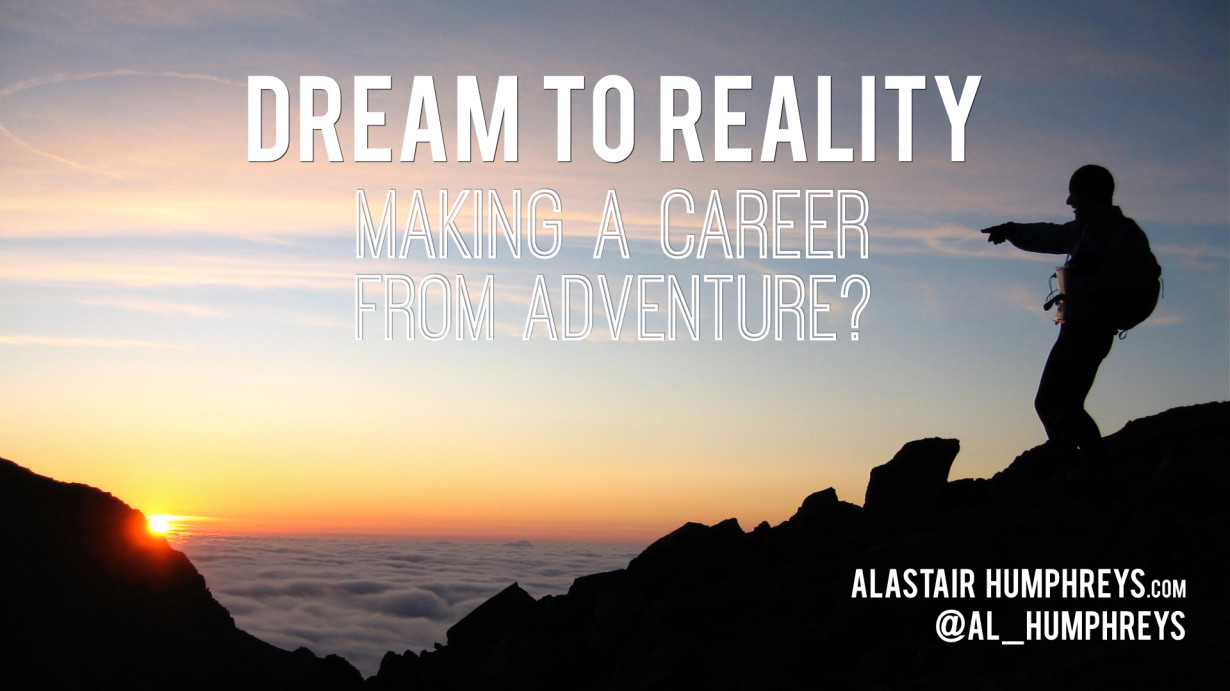
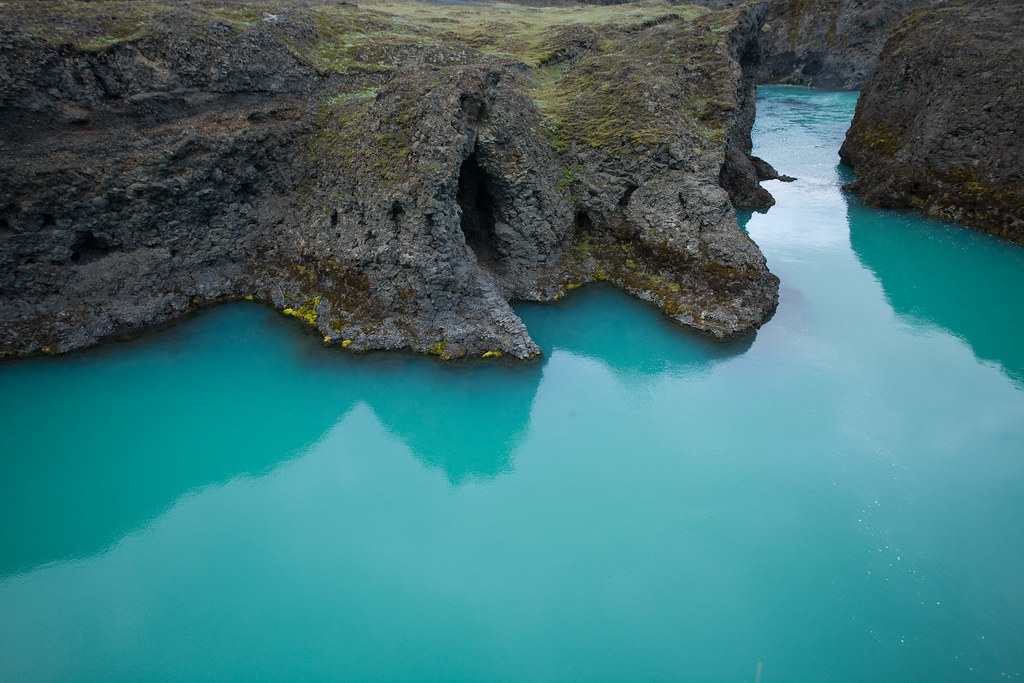


I read this on my way home from Ghawdex (Gozo) today.
I stand and applaud you. It’s real, honest and true article.
I’d like to add that at times one needs to break hard, stop look back and start again if all goes pair-shaped.
Persistence! Amen.
A great blog Al.
Nice article Al. You make some very interesting and sensible points to anyone wanting to pursue adventuring as a career. Couldn’t agree more about the section on Social Media – too often it is thought of as a shortcut to success.
Nothing good in life comes easy…
Cheers Al,
The best point for me to take away from this is understanding your WHY? Remembering at each stage why you begun and why you want this lifestyle of so many others. Cheers – Tarran
Lovely advice — thanks for sharing!
Another great article Alastair, a very informative read!
Great post and glad to meet (in cyberspace anyway) a fellow traveler. Will have to “buy you some coffee.” I’ve been without a day job for 22 years because like Alastair, I’ve learned to make a living from my hobbies. Nine of them so far: gardening, design, politics, stone masonry, carpentry, sculpture, writing, photography and most recently, foraging. Never thought I’d make a dime from foraging, but now I’m writing a column about it for a magazine and making over $100/hour from selling to chefs. Wrote about my avocational adventures and offered some tips in an essay for the NY Times a few years ago (pre-foraging): http://www.nytimes.com/2011/01/09/jobs/09pre.html?_r=0
wow – 22 years is very inspiring! Well done!
Nice piece. I can’t help but think how one person’s adventure is another person’s normal day. Make it an adventure.
Al,
As always, you’ve hit the preverbal nail on the head. I don’t think I’ve ever had a proper job, even including the 6 years in the Army.
Moreover, since going self-employed and attempting to build a career through my hobby (doing ridiculously hard endurance races around the world), I’ve never worked harder. And the really tough bit is knowing when you’ve ‘made it’. Because if you ask anyone who in your eyes has ‘made it’, they’ll tell you they’ve not. That they’re still searching for more.
Writing for magazines and newspapers is an excellent way to gain exposure and a rubbish way to earn a living. And although you will never by financially rich, you might, if you’re very lucky, be exceptionally rich in life experiences, travelling the world in the name of ‘journalism’.
It’s the best job in the world. But also the toughest! Reading this article, it’s a relief to know that I’m not alone.
Cheers,
Tobes
Thanks, Tobes – plenty of wise words there.
If you enjoy what you do, and if it’s sustainable, then you shouldn’t yearn for more (that’s what I’ve been telling myself for the last few years and the message is finally getting through!)
The hobby into a job thing has kind of crept up on us Blondes. Our first love is leading groups of youngsters on Dartmoor, then came Two Blondes Walking the blog (over two years of daily posts now) and finally, more recently, Two Blondes Walking Limited and a self-published book (The Dartmoor Christmas Tree).
Your article is right on many counts. We love what we do which helps enormously, we have built up a loyal blog and social media following, we have worked very hard at what we do for a long time, we didn’t make too many plans and are excited about the future.
What you neglected to mention was our favourite new Blonde word – “jobby”. This is a hobby that is a job (or maybe a job that is a hobby). No money but requires the same amount of patience and commitment.
Mine’s definitely a jobby!
Great article, too many people today are looking for the shortcuts – it’s refreshing to see the realism injected and yet still seeing you’re still driven to do it through your passion.
.. Ken
I was in the audience for your talk on this subject at Explore last year. It was great, and it’s obvious that you’ve earned your speaker’s stripes. You’re not the easiest act to follow 😉
But getting the detail down and making it permanently available is a different thing altogether. It’s posts like these (apart from seeing what you’re up to) that make me follow your blog and recommend it to friends.
It’s incredibly generous of you to put so much effort into distilling your experience into real, honest, and detailed advice for others, and to share it so freely. I’ve clipped it to my Evernote library and will be sharing with abandon.
Big love
Your talk was great too!
This is immensely helpful.
The best article I have read on the subject. The most real and down to earth explaination on important topics to help guide people like myself in deciding if this is the right path for me, which i have decided it most definitely still is. Great work Alaistair.
Great one Al. Enjoyed this.
What is USP again? How did you find small speaking engagements starting off? How did you set a fee? When they got bigger did you use a speakers agency or anything?
USP = unique selling point.
I started by speaking at local schools. First for free, then go up in increments of £50 till people start complaining.
Yes – I’m on the books of many agencies, though they get me very little work. Most comes direct.
Thanks for that honesty. It was great to be tempered with realism and yet still be encouraged. Thank you for your work. I’m looking forward to following you now that I have found and read some of your stuff. The part about just starting is so key, don’t run a marathon before you run a mile.
Nate
A good read. I have just discovered that adventurer can actually be a job if you put in the hard work. Now you have got me thinking…… thanks
Dear Alastair,
Please answer my query: How did you manage to bike around the world? is there any concept of a global visa?
Thanks and Regards
Hi,
Afraid there is no global visa – you have to apply country by country. This may help:
https://alastairhumphreys.com/advice-securing-visas/
https://alastairhumphreys.com/arrange-visas-travelling/
Al, what an excellent eye opener in to what is my dream job, however I’ve realized many small adventures or micro adventure s offers so much reward for a night in the sticks and a excuse to day dream at work,
Spot on in my experience and in those I have seen “make it”. I had started to make some progress through sheer persistence and patience, but stopped in order to put my time into other areas of my life that had become more important to me. I had some great experiences along the way though. Persistence and patience fuelled by energy, passion and commitment can take you a long way.
Very nice and informative post Alastair! Thanks for the guidance. I am from India and wish to amalgamate ‘Adventure’ with ‘Cognitive Enhancement’ as my niche. I am a Writer and i wish to monetize and earn a living through my books and online course. Its nice to connect with you and wish you all the best in your endeavors!
Hay, ma friend . i am an engineer student. I Do wish to be an adventure. But a question how to make up money in adventure, as i do have a great responsibility on my family. would u pls clear me out. thanku.
I started blogging around four years ago and have been on and off for awhile, but reading through this article has reminded me why I do it. I’ve always loved writing, and the lure of adventure has been ever present in my heart. Next year I’ll be adventuring through New Zealand, and I will be sure to produce quality stuff!
Great piece. Very direct, very honest, and very open. You’re sharing a lifetime of wisdom in this post.
Just a brief note from someone who has tried himself as an “everyday adventurer†(and—feeling free—wrote a little book about it) and who has traveled the world for one and a half years (and wrote a little book about that, too)—making a living of adventure, in whatever form, seems hard. I may have only done so half-heartedly, maybe I went about in an inopportune way, but what you, Alastair, have done seems to have been a much greater feat and much more successful. Awesome to learn about your journey.
Alastair this is excellent!
I’m a midddle class white guy that’s trying to make a living form his hobbies and this is the kind of no B/S advice I need.
Looking forward to your evening in London in a couple of weeks.
Charlie Brunskill
Hi Charlie,
Just FYI, the Instagram link on your home page is broken.
Humphreys …you are my ideal person and inspiration!! Please keep sharing your micro adventures .More power to you !!!
I’m late to read, but excellent post! Thank you, Al for taking the time and for being so thorough. Oh, and I’m a big fan.